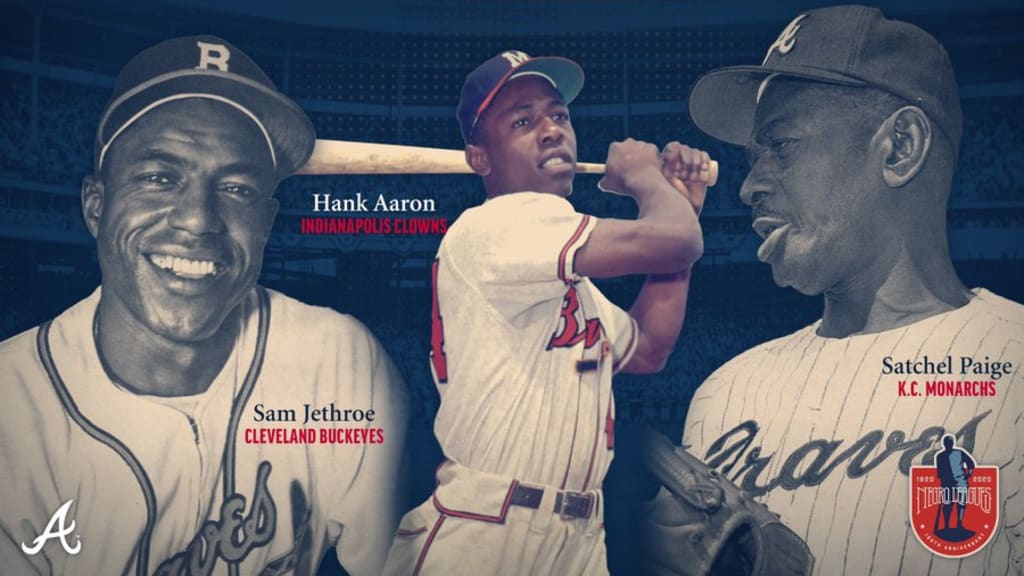
Dansby Swanson’s appreciation for Hank Aaron has grown as he’s had some chances over the past few years to interact with the iconic Hall of Famer, who started his professional career in the Negro Leagues.
“It’s amazing to see someone who has had such a remarkable impact on baseball be such a good person,” Swanson said. “He cares for other people and wants the best for everyone.”
As MLB celebrated the 100th anniversary of the Negro Leagues on Sunday, there was reason to celebrate what Aaron, Jackie Robinson, Satchel Paige, Roy Campanella and others had accomplished after being given a chance to participate in the integrated Major Leagues.
At the same time, there was reason to recognize the greatness of Josh Gibson, Cool Papa Bell, Oscar Charleston and the many other Negro League legends who were never given a chance to play in the Majors.
“There was a time when I thought that all the things [Martin Luther King Jr.] and the other civil rights leaders had done was unappreciated by young people,” Aaron said. “History has taught us if you don't keep pounding issues into their heads, they'll soon forget about what happened."
Aaron’s tenure in the Negro Leagues was short. He was just 18 years old when he spent three months with the Indianapolis Clowns before signing with the Braves midway through the 1952 season. He’d make his MLB debut on April 13, 1954, two days shy of the seventh anniversary of Robinson breaking MLB’s color barrier.
Robinson played for the Negro League’s Kansas City Monarchs in 1945 and then signed with the Brooklyn Dodgers. The legendary pioneer continued to deal with racism and segregation after making his big league debut in 1947.
When Robinson and the Dodgers came to Atlanta to play an exhibition game against the Minor League Atlanta Crackers on April 8, 1949, it marked the first time an integrated professional game had been played in the Deep South.
“It was more than a game, it was definitely an event,” said longtime Braves usher Walter Banks, who was a 9-year-old Atlanta resident when Robinson came to town. “I’ve been so proud of it over the years because things like that just didn’t happen.”
Robinson dealt with death threats and protests staged by the Ku Klux Klan throughout the three-game series played against the Crackers at the former Ponce de Leon Park.
But as fate would have it, exactly 25 years later and about four miles south of this groundbreaking event, Aaron created one of baseball’s greatest moments by breaking Babe Ruth’s home run record on April 8, 1974.
“God always writes funny stories,” Swanson said. “It feels like he always has a plan as to how things will work out. It’s so cool to see the history of our great city and the impact it’s had on baseball and the impact baseball has had on it.”



